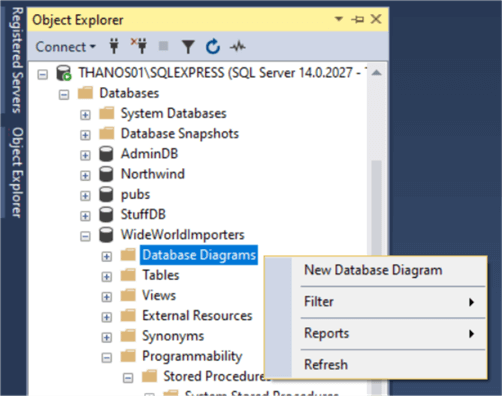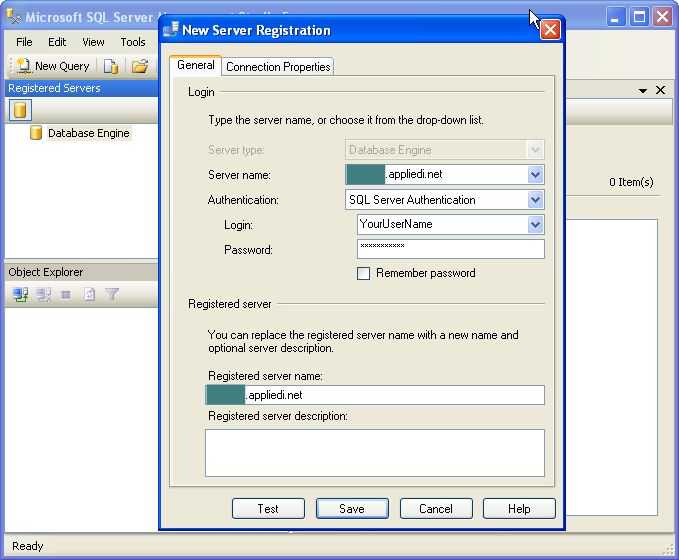
- #CREATE LOCAL DATABASE SQL SERVER MANAGEMENT STUDIO 17 HOW TO#
- #CREATE LOCAL DATABASE SQL SERVER MANAGEMENT STUDIO 17 UPDATE#
- #CREATE LOCAL DATABASE SQL SERVER MANAGEMENT STUDIO 17 PASSWORD#
- #CREATE LOCAL DATABASE SQL SERVER MANAGEMENT STUDIO 17 WINDOWS#
#CREATE LOCAL DATABASE SQL SERVER MANAGEMENT STUDIO 17 WINDOWS#
When queries are executed in the new Query Editor window, they will execute against all of the servers in the server group, using the stored connection information and using the Windows Authentication context of the user.Really this is very annoying and time wasting task to change the database the one you want to work.

To execute queries against all the servers that are registered with a Central Management Server, expand the Central Management Server, right-click the server group, point to click Connect, and then click New Query.
#CREATE LOCAL DATABASE SQL SERVER MANAGEMENT STUDIO 17 PASSWORD#
Servers registered by using SQL Server Authentication but not saving the password will fail to connect.

When queries are executed in the new Query Editor window, they will execute against all servers in the group, using the stored connection information including the user authentication context. To execute queries against all the servers in a local server group, right-click the server group, point to click Connect, and then click New Query.
#CREATE LOCAL DATABASE SQL SERVER MANAGEMENT STUDIO 17 HOW TO#
For more information about how to execute multiserver queries, see Execute Statements Against Multiple Servers Simultaneously (SQL Server Management Studio). As an option, Query Editor can include columns that provide the name of the server that produced each row, and also the login that was used to connect to the server that provided each row. The results that are returned by the query can be merged into a single results pane, or they can be returned in separate results panes. The Query Editor window in SQL Server Management Studio can connect to and query multiple instances of SQL Server at the same time. This name does not have to match the Server name box.Įnter an optional description of the server.Ĭlick to test the connection to the server selected in Server name.Ĭlick to save the registered server settings. The name you want to appear in Registered Servers. If you have stored the password and want to stop storing it, clear this check box, and then click Save. If SQL Server does not have a login account set, authentication fails, and the user receives an error message. When a user connects with a specified login name and password from a nontrusted connection, SQL Server performs the authentication itself by checking whether a SQL Server login account has been set up and whether the specified password matches the one previously recorded. Windows Authentication mode allows a user to connect through a Microsoft Windows user account. Two authentication modes are available when connecting to an instance of SQL Server. Select the server instance to register in the format. To register a different type of server, click Database Engine, Analysis Server, Reporting Services, or Integration Services on the Registered Servers toolbar before starting to register a new server. When a server is registered from Registered Servers, the Server type box is read-only, and matches the type of server displayed in the Registered Servers pane. If Registered Servers is not visible in SQL Server Management Studio, on the View menu, click Registered Servers.
#CREATE LOCAL DATABASE SQL SERVER MANAGEMENT STUDIO 17 UPDATE#

After a Central Management Server has been registered, its associated registered servers will be automatically displayed. Central Management Servers and subordinate registered servers can be registered only by using Windows Authentication. We recommend that you use Windows Authentication whenever possible.Ĭentral Management Servers store server registrations in the Central Management Server instead of on the file system.


 0 kommentar(er)
0 kommentar(er)
